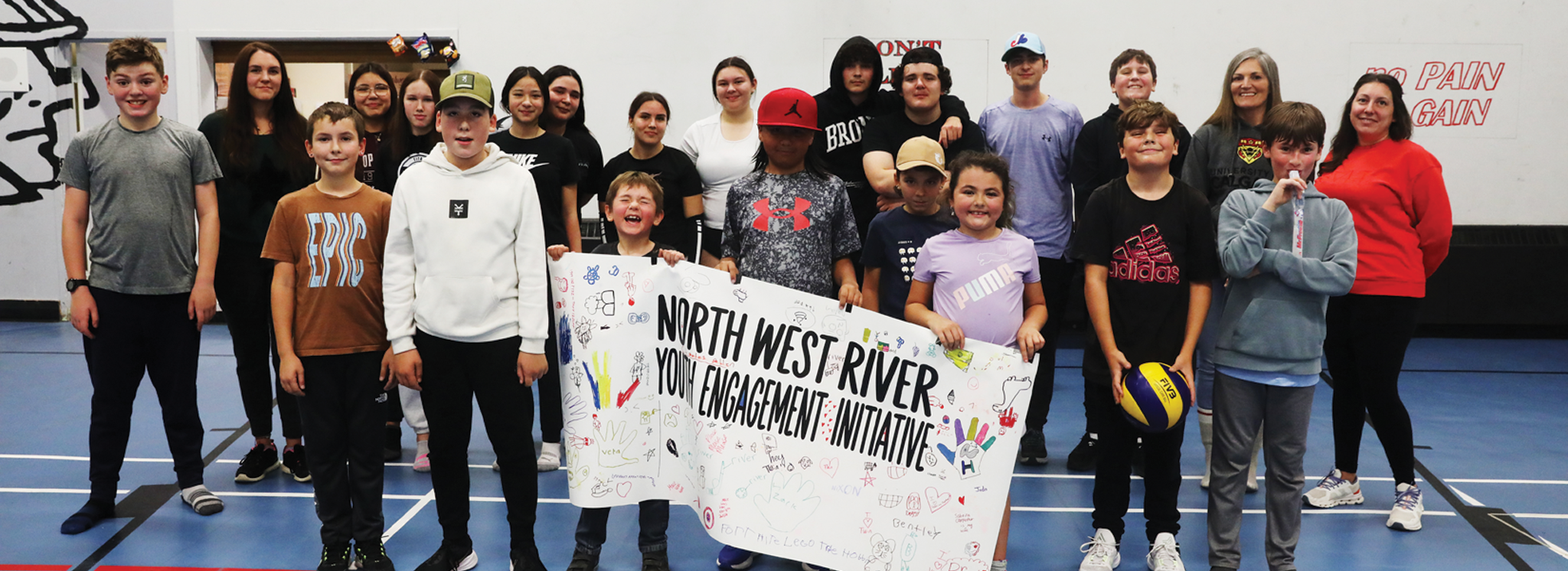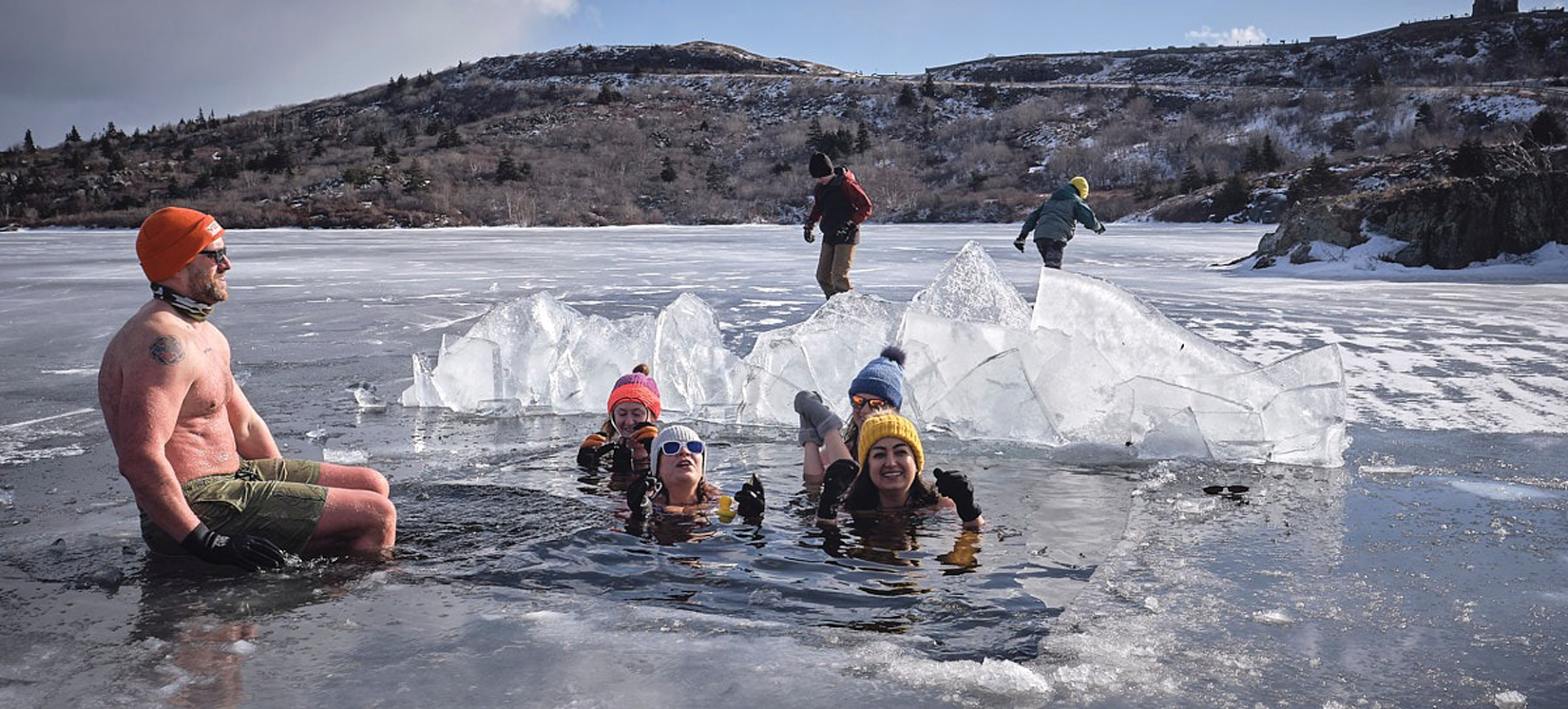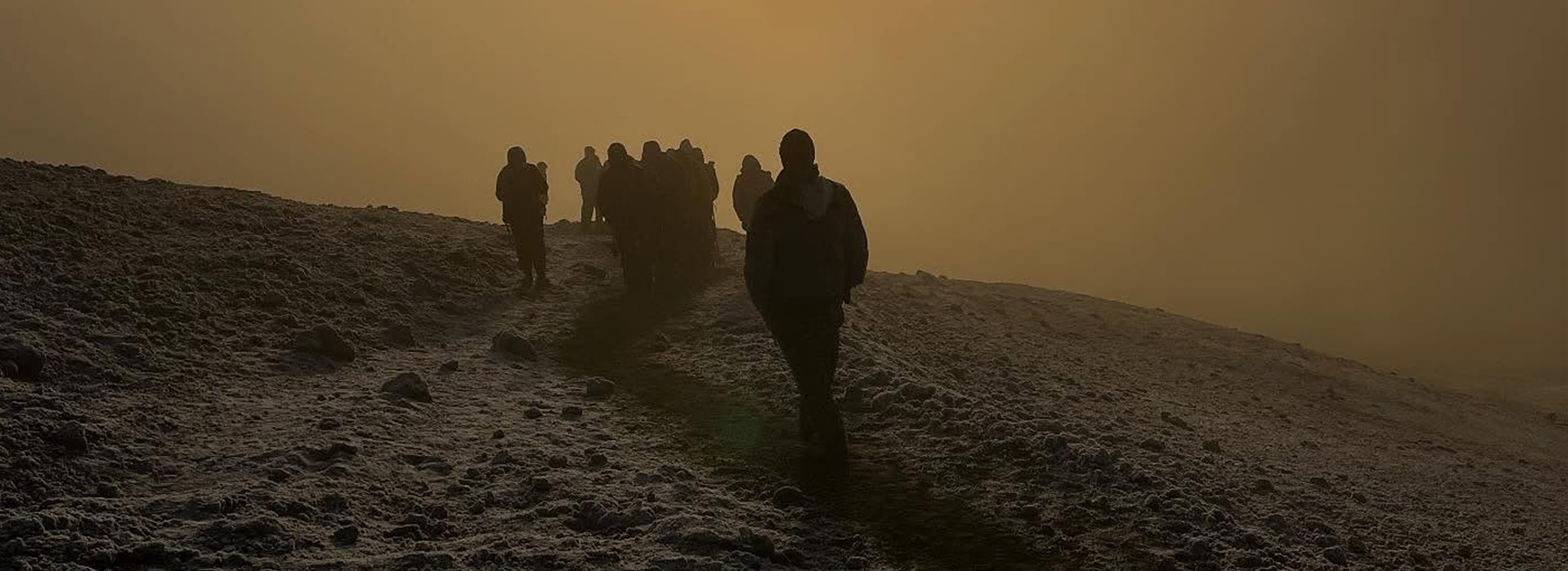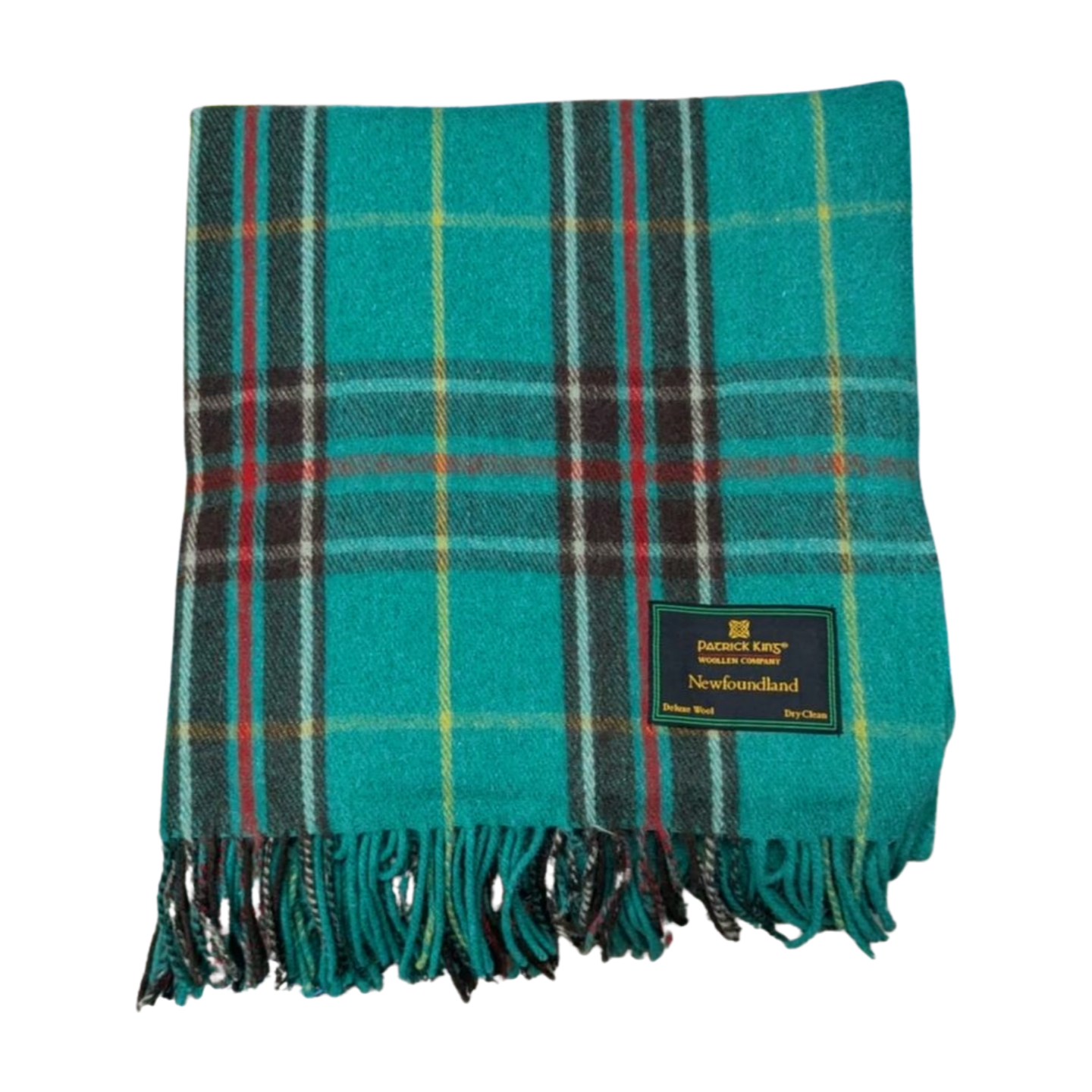by Heidi Atter
Every Thursday evening in North West River, the Lake Melville School gym begins to fill with children and teenagers. Some head straight to the basketballs on metal racks, and instantly start shooting hoops, while others stop by the canteen for a sweet treat. The gym’s large performing stage’s curtains are open for puzzles, rest, and play, while some sit on the floor and watch.
In the town of 500, it’s the only public place in the community where these teenagers can go and play in the evenings.
“There’s some misperceptions that kind of lead to, like, ageism and discrimination towards the younger population,” said Jeanien Cooper. “They really think that our kids are up to no good.”
There’s a thinking in the town that kids are hard to handle and will only destroy things. It’s that thinking organizers Jeanien Cooper and Roxanne Riche are hoping to combat. The two created the non-profit North West River Youth Engagement Initiative in June 2024 and began holding unstructured youth nights on Mondays and Thursdays.
After months in the gym, not a single piece of equipment has been destroyed and there have been no complaints from parents or teenagers, Jeanien explains.
“They’re good kids,” Roxanne admits.
The two have a long-term view. These children and teenagers are going to grow up, with Jeanien explaining that many hope to stay in town to improve it.
“If a community isn’t invested in their kids, then they’re not investing in themselves, because the kids are the continuity. They are the future generation,” she says.
At the far side of the gym, a group of teenagers is already displaying what it means to be a role model.
Seven-year-old River Cooper jumps as high as he can while trying to throw a dodgeball into a tall basketball hoop. After each shot, the teenagers take turns grabbing the ball and passing it back to him.
River may only be half the size of the 15 to 17-year-olds, but the group encourages him, giving River tips, making sure he has space to shoot and no one playing near him bumps into the child.
“It’s very fun here,” River says with a smile. “[The big kids] help you with hard stuff that you can’t do yet.”
Basketball is River’s favourite, especially when the “big kids” help. River says he can’t slam dunk like some of the older kids just yet, but he’ll get there.
The volunteers are kind, selling food in case they get hungry or thirsty. If it weren’t for the youth nights, River shares that he’d probably be home alone playing video games. He hopes they do more youth nights so he and others can play.
Riche and Jeanien can’t stop smiling as they watch River play with the teenagers.
“They’re being very patient. They’re giving them his high fives and they’re letting him play with them,” Riche says.
The teenagers have patience for the young kids but also get two hours with only their older age group each night from eight to ten to play with a bit more space.
“And there’s never been a night that we didn’t have anybody show up,” Roxanne admits.
“And again, where else are the kids going to go?” Jeanien asks.
Without healthy places to go to, kids turn to where they can get a sense of community and belonging elsewhere, Roxanne explains. Often, that unhealthy place can include alcohol and drugs, as kids seek to fit in and belong.
Growing up in North West River, Jeanien and Roxanne remember not having spaces when they were teens and both individually turned to drinking outside in the woods with others because there wasn’t anywhere in town to go.
“We’re hoping that it’s a safe place to go. It keeps them off the streets,” Roxanne explains.
“We need to break that cycle,” Jeanien adds, emphatically.
Combatting intergenerational trauma with play
Breaking the cycle goes far beyond Jeanien’s generation. The community of North West River has a majority Indigenous population, with many families that have been affected by colonization and the local residential school that operated in the town for decades.
Many Inuit and Innu homes struggle with intergenerational trauma, with grandparents and parents on their own healing journeys. The community also has high rates of addiction to drug and alcohol use, Jeanien says.
But with the youth, there’s a chance to help them understand the legacy of residential schools, and colonialism, build healthy relationships, be in a safe space, and learn about their cultures by interweaving traditional Indigenous knowledge throughout their future programming.
“It’s not reactive, it’s proactive,” Jeanien says. “They can come to know who they are, and then they can be proud in their own identity and community and culture.”
It also provides a space where parents know their children are safe, so they can take the evening to rest, recharge and continue their healing journeys.
Removing technology from the equation
In an hour, children and teenagers play with scooters, soccer balls, jumping mats, and basketballs and only one child takes a break from playing to film goofy videos on their cell phone. The rest have no phones in sight. It’s something Kierra Blake thinks about during the unstructured time.
The 16-year-old comes to socialize and see her friends and other kids all in one place. She doesn’t mind playing with the younger children as some have quite a strong soccer kick, and she gets a lot of exercise.
“I love it,” Kierra says. “I’m not on my phone for four hours. I’m off of it and playing sports, getting exercise.”
Kierra comes every night she can and hopes to volunteer with the non-profit when she’s a bit older. Roxanne and Jeanien have only cancelled two youth nights since June, one on Canada Day and one on Thanksgiving.
Despite not getting support from leaders and organizations, the support from the community members in general and parents is incredible.
The pair talk quickly about their big dreams for the future, excitement filling their voices. They dream of a youth centre with a gym space, artistic space, gaming room and cultural space where they can teach traditional Indigenous programming, so the youth know and be proud of who they are.
Jeanien and Roxanne have been applying for every grant possible to try to get a part-time staff member hired to run youth programming even three nights a week.
The group used the community centre until it wasn’t an option, and then the Lake Melville School principal Melissa Hackett reached out to offer her help. Melissa lets the group use the space free of charge and offers a canteen space so they can fundraise for youth supplies.
Jeanien explains it was not a perfect situation. Not all the youth are interested in sports and it can be tough for them to get to as the school doesn’t have many street lights surrounding it, so the number of kids coming in the evenings has dropped.
The two went to a town council meeting, with the idea to tear down the former North West River youth dormitory and reuse the land as a positive centre for youth. Residential school survivors have been calling for it to be torn down for years. However, there wasn’t an enthusiastic response for a youth centre to be created.
“I think people are old school around here, and they’re reluctant to change,” Roxanne says.
While the reluctance can be disappointing, Jeanien and Roxanne look out at the kids and can’t stop smiling. They are determined to push forward, create a healthy space for the next generation to learn kindness and create a better future.
“They’re good kids,” Roxanne says.
“They’re better than we were,” Jeanien adds, laughing.












